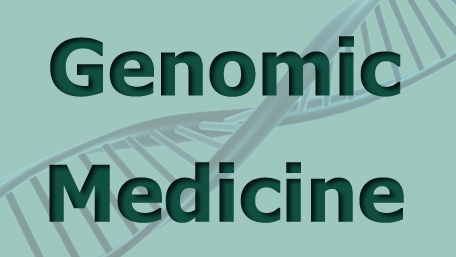
08/11/2020
Hot Topics of the Day are picked by experts to capture the latest information and publications on public health genomics and precision health for various diseases and health topics. Sources include published scientific literature, reviews, blogs and popular press articles.
Sign up MyPHGKB to receive the daily hot topic email alert.
Archived Hot Topics of the Day By Date
Genomic sequencing to screen newborns raises more false alarms than routine blood tests, study finds
R Robbins, Stat News, August 10, 2020
The role of exome sequencing in newborn screening for inborn errors of metabolism
AN Adhikari et al, Nature Medicine, August 10, 2020
Discovery through clinical sequencing in oncology
MTA Donoghue et al, Nat Cancer, August 10, 2020
The Human Genome Project changed everything
RA Gibbs, Nat Rev Genetics, August 7, 2020
A multidimensional precision medicine approach identifies an autism subtype characterized by dyslipidemia
Y Luo et al, Nature Medicine, August 10, 2020
On the Interplay of Regional Mobility, Social Connectedness, and the Spread of COVID-19 in Germany
C Fritz et al, ARXIV, August 7, 2020
Applications of predictive modelling early in the COVID-19 epidemic
C Poletto et al, The Lancet, August 10, 2020
A Classification Approach for Predicting COVID-19 Patient Survival Outcome with Machine Learning Techniques
AA Osi et al, MEDRXIV, August 10, 2020
She Had Her Own Mutation, Sequencing Led to a Treatment and Major Genetic Discovery – Then She Died of COVID
R Lewis, PLOS Blogs, August 6, 2020
Identification of Undetected Monogenic Cardiovascular Disorders
JW AbdulRahim et al, JACC, August 7, 2020
Health Policy and Privacy Challenges Associated With Digital Technology
D Grande et al, JAMA Network Open, August 9, 2020
Disclaimer: Articles listed in Hot Topics of the Day are selected by Public Health Genomics Branch to provide current awareness of the scientific literature and news. Inclusion in the update does not necessarily represent the views of the Centers for Disease Control and Prevention nor does it imply endorsement of the article's methods or findings. CDC and DHHS assume no responsibility for the factual accuracy of the items presented. The selection, omission, or content of items does not imply any endorsement or other position taken by CDC or DHHS. Opinion, findings and conclusions expressed by the original authors of items included in the Clips, or persons quoted therein, are strictly their own and are in no way meant to represent the opinion or views of CDC or DHHS. References to publications, news sources, and non-CDC Websites are provided solely for informational purposes and do not imply endorsement by CDC or DHHS.
- Page last reviewed:Feb 1, 2024
- Page last updated:Apr 29, 2024
- Content source:









